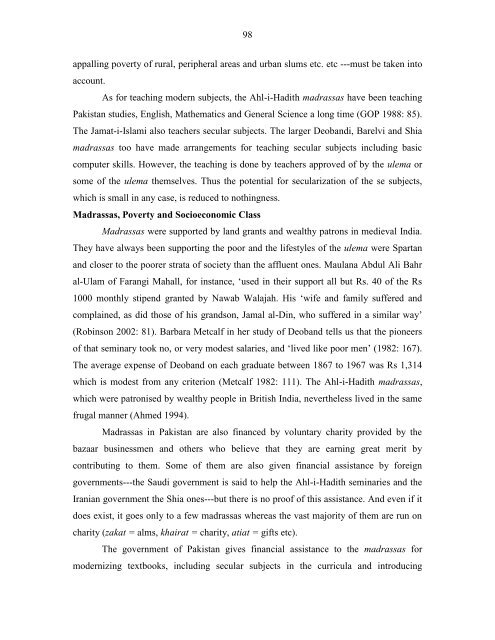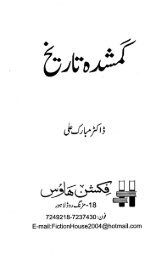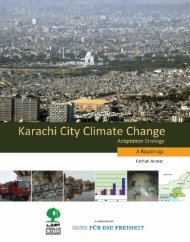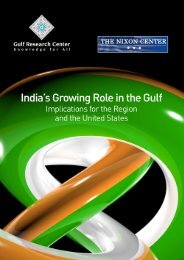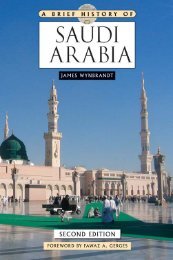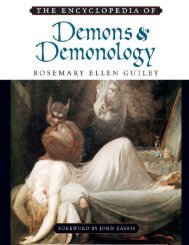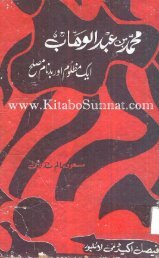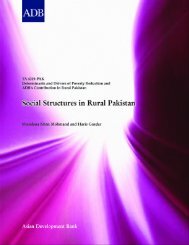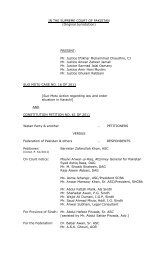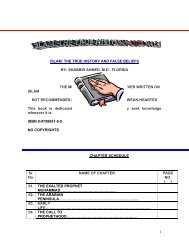DENIZENS OF ALIEN WORLDS
danizen1
danizen1
- No tags were found...
You also want an ePaper? Increase the reach of your titles
YUMPU automatically turns print PDFs into web optimized ePapers that Google loves.
98<br />
appalling poverty of rural, peripheral areas and urban slums etc. etc ---must be taken into<br />
account.<br />
As for teaching modern subjects, the Ahl-i-Hadith madrassas have been teaching<br />
Pakistan studies, English, Mathematics and General Science a long time (GOP 1988: 85).<br />
The Jamat-i-Islami also teachers secular subjects. The larger Deobandi, Barelvi and Shia<br />
madrassas too have made arrangements for teaching secular subjects including basic<br />
computer skills. However, the teaching is done by teachers approved of by the ulema or<br />
some of the ulema themselves. Thus the potential for secularization of the se subjects,<br />
which is small in any case, is reduced to nothingness.<br />
Madrassas, Poverty and Socioeconomic Class<br />
Madrassas were supported by land grants and wealthy patrons in medieval India.<br />
They have always been supporting the poor and the lifestyles of the ulema were Spartan<br />
and closer to the poorer strata of society than the affluent ones. Maulana Abdul Ali Bahr<br />
al-Ulam of Farangi Mahall, for instance, ‗used in their support all but Rs. 40 of the Rs<br />
1000 monthly stipend granted by Nawab Walajah. His ‗wife and family suffered and<br />
complained, as did those of his grandson, Jamal al-Din, who suffered in a similar way‘<br />
(Robinson 2002: 81). Barbara Metcalf in her study of Deoband tells us that the pioneers<br />
of that seminary took no, or very modest salaries, and ‗lived like poor men‘ (1982: 167).<br />
The average expense of Deoband on each graduate between 1867 to 1967 was Rs 1,314<br />
which is modest from any criterion (Metcalf 1982: 111). The Ahl-i-Hadith madrassas,<br />
which were patronised by wealthy people in British India, nevertheless lived in the same<br />
frugal manner (Ahmed 1994).<br />
Madrassas in Pakistan are also financed by voluntary charity provided by the<br />
bazaar businessmen and others who believe that they are earning great merit by<br />
contributing to them. Some of them are also given financial assistance by foreign<br />
governments---the Saudi government is said to help the Ahl-i-Hadith seminaries and the<br />
Iranian government the Shia ones---but there is no proof of this assistance. And even if it<br />
does exist, it goes only to a few madrassas whereas the vast majority of them are run on<br />
charity (zakat = alms, khairat = charity, atiat = gifts etc).<br />
The government of Pakistan gives financial assistance to the madrassas for<br />
modernizing textbooks, including secular subjects in the curricula and introducing


